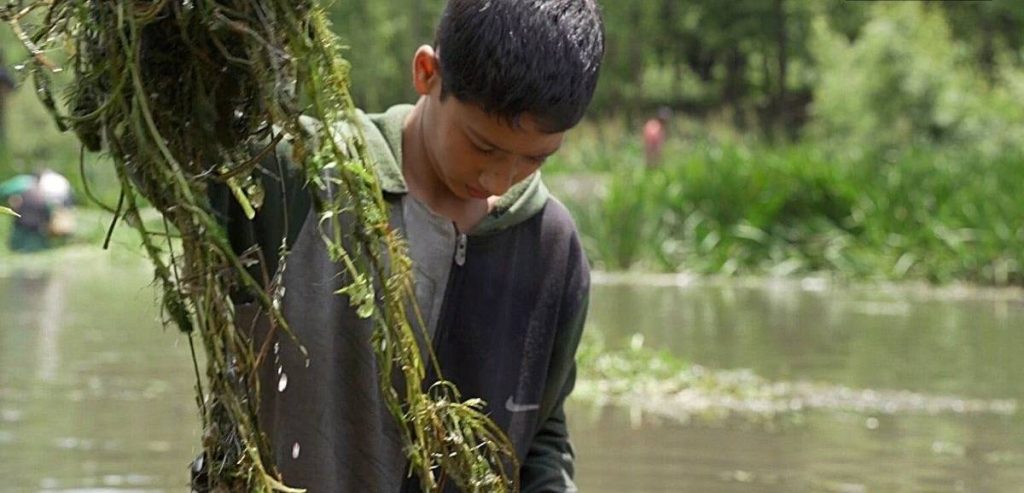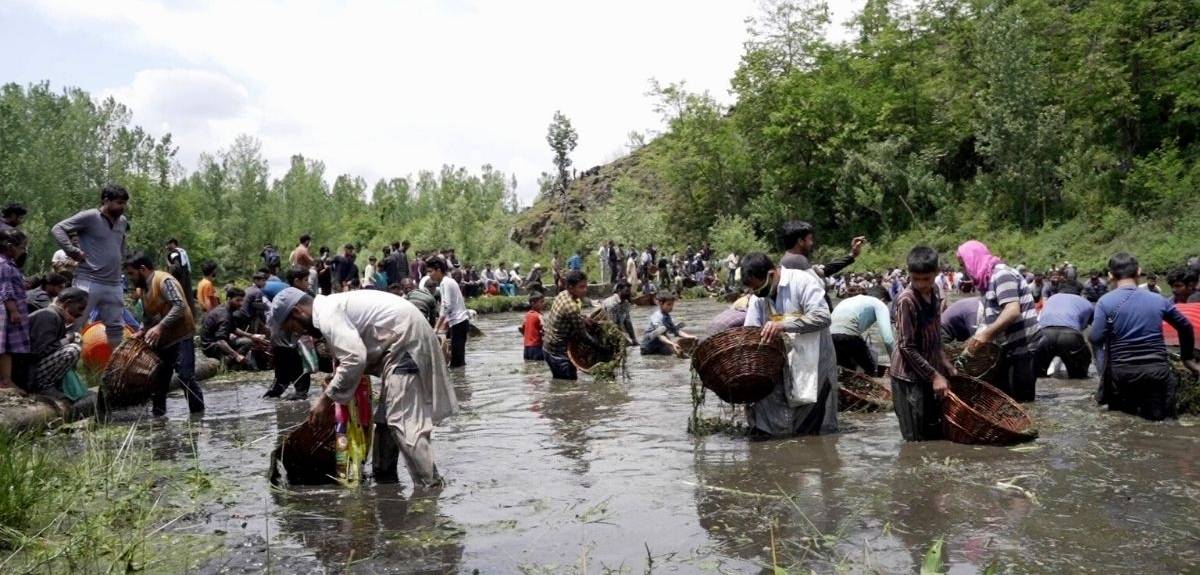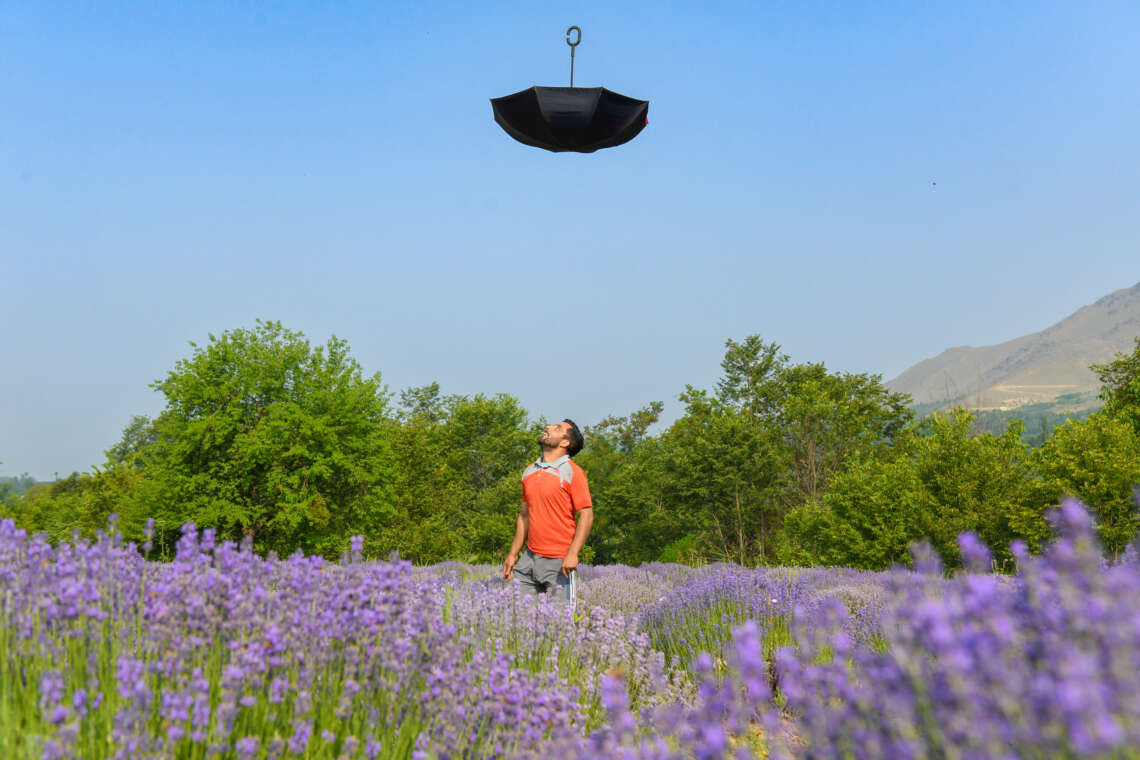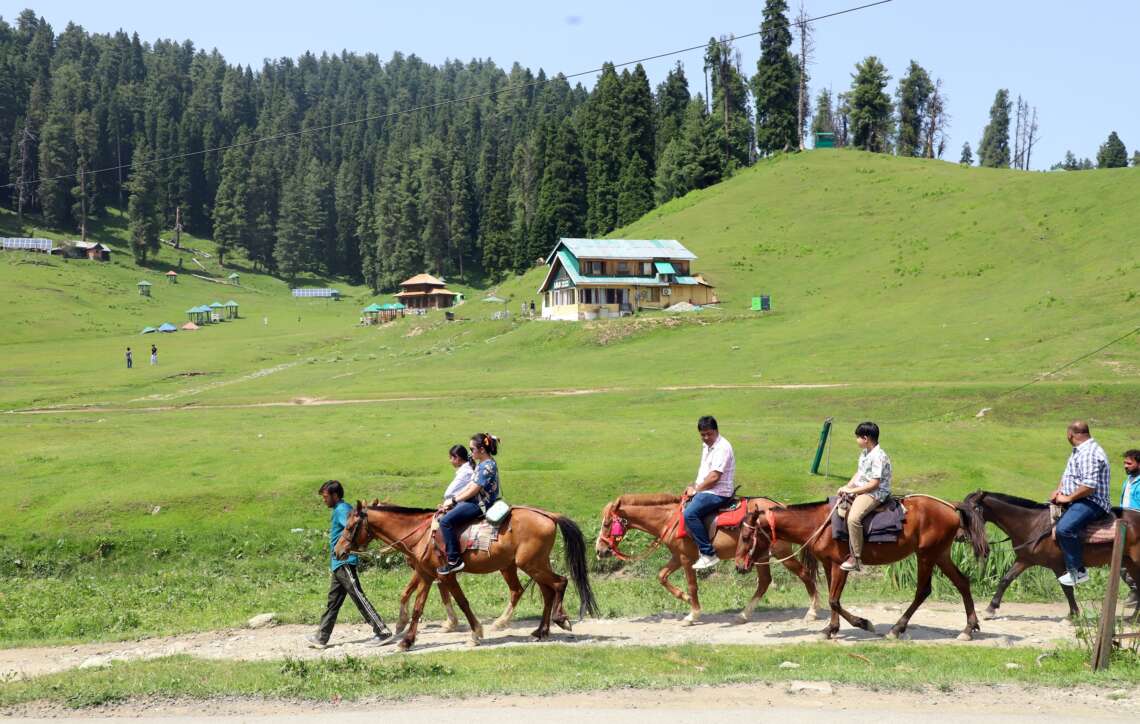A police official from Panzath Nag explained that the benefit of this collective fishing activity could not be denied…reports Uruss Munaf
When Khadijah Begum was a little girl, she would often accompany her grandparents to a natural spring in her village. Her grandfather would catch fish along with other men, and Khadijah and her grandmother would clean them. The spring’s water was so clear, Khadijah recalled, that she and her friends could even apply kohl to their eyes through its reflection.
Today, decades since Khadijah’s trips to the spring with her grandparents, hundreds of natural water resources in Kashmir, on which local populations have depended for generations, have degraded due to pollution and waste disposal — except the spring she frequented.
This natural spring is in south Kashmir’s Anantnag district in the village of Panzath Nag, which translates to ‘the land of 500 springs’. Over the years, this perennial spring has managed to preserve its purity and pristine state, thanks to a unique annual festival that has been celebrated through generations. A celebration that “felt like Eid” for the now 76-year-old Khadijah Begum.
Rohan Posh, which translates to ‘flowering the souls’, is the traditional annual fruit blossom festival specific to the region, celebrated in the third week of May before the paddy fields are tilled. The festival happens whenever residents witness the first blossom in their orchards, which are then spread over the graves of the recently deceased. They believe that these fresh blooms will bring comfort to the dead. This festive week, the village elders of Panzath Nag choose a day dedicated to cleaning the spring. Everyone takes a day off for desilting, de-weeding and fishing. People from nearby villages, including children, gather with wicker baskets and mosquito nets, wading to filter through the waters. Later, the villagers take the fish home and have a feast with their families and relatives.
While the locals are unsure of when this ritual began, everyone agrees that it’s “age-old”.
“We inherited it from our forefathers — from the era of the maharajas between 1846 and 1947,” said Ali Mohammed Shah (63), adding that local residents had cleaned the spring water for generations to avail good water for drinking and irrigation all year round.
Moreover, the spring itself finds mention in the ancient texts of Kashmir, the Nilamata Purana and Rajatarangini that were written around the 12th Century.
Shabir Ahmad, a local resident said that the spring brings forth a rivulet, which, alongside irrigating the paddy fields in downstream villages, also provides drinking water to over 25 more villages through supply lines. However, in the summer, aquatic weeds such as algae bloom overwhelm the spring. The collective fishing-cum-weeding activity of the local community then restores the spring the following year. Deeming the festival a perfect example of a “community initiative”, environmental expert Dr Irfan Reshi said that the proliferation of weeds in the Kashmir Valley is a significant challenge that’s led to biodiversity loss and pollution.
Furthermore, a police official from Panzath Nag explained that the benefit of this collective fishing activity could not be denied.
Ishfaq Hassan, a visitor from Srinagar currently pursuing a degree in Environmental Science and Water Management at the University of Kashmir, said, “It’s an amazing experience to witness hundreds of people in the waters de-weeding and fishing in the spring.”
He added that in the rural areas of Kashmir, paddy fields are either being converted into housing colonies or horticulture orchards as they suffer from a shortage of irrigation facilities. The streams, rivulets, waterfalls, wells, ponds and rivers here had become dumping sites due to the lack of waste disposal provisions in villages.
Another visitor, Maheen from the Environmental Science Department at the University of Kashmir, echoed Hassan’s views and said, “Where most water bodies are under tremendous pressure and witnessing such de-weeding exercises without any government or organisational intervention, it’s hard to believe the unbelievable results this initiative is fetching.”
While villagers have participated in this tradition through the years, the festival has also attracted many visitors from Srinagar, much like Maheen and Hassan, who as students of environmental science were intrigued by the land of 500 springs and its self-sustaining traditions. Local residents believe the festival can help strengthen the village’s position on Kashmir’s tourist map. Shah said this will encourage authorities to take better care of it. Regardless, the villagers are committed to carrying on the tradition in the future.
“The festival is a way to connect with our friends, neighbours and family. The event is so lively and fun,” Mohammed Shariq (19), a student who lives in the village, told 101Reporters.

Appreciating the festival, environmentalist Reshi raised concerns over the alarming depletion of fresh water, of which 80 per cent is used for agricultural purposes in Kashmir.
“Despite such abundant water resources in Kashmir, there is enormous pressure on natural water resources. Nowadays, it is seen that in rural areas, the heritage water resources are polluted and choked by solid waste, household refusals, polythene bags, plastic substances, wrappers, and indiscriminate encroachments. Therefore, the government should promote such community initiatives to motivate more people towards the conservation of water resources.”
ALSO READ-SPRING IN BEIRUT














